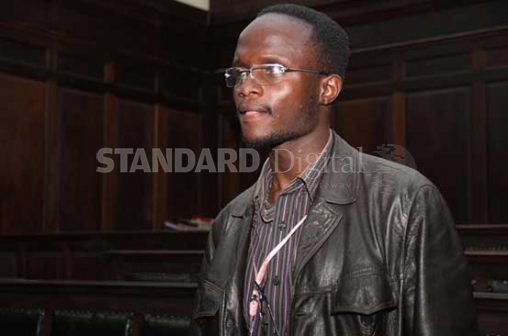
A man who had sued his parents has lost the case after the Court of Appeal found that he had not given evidence for it to force them to apologise. Anthony Kariuki Maithia Mcknight (pictured) had moved to the Court and declared that he wanted nothing to do with his biological parents until they apologised for ‘torturing’ him.
But in their ruling, Court of Appeal Judges - Asike Makhandia, William Ouko and Kathurima M’noti - dismissed Anthony’s case with a few lessons on importance of obeying your parents. They ruled that the 32-year old ought to mend his relationship with his parents.